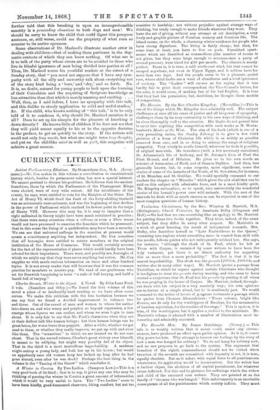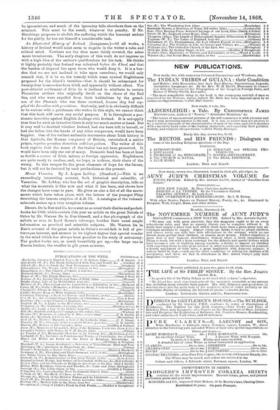The Bramble Hut. By James Hutchings. (Newry.) — This tale
is so weakly written that it never could, under any circum- stances, have produced an effect upon public opinion. As it is, it comes fifty years too late. Why attempt to harrow our feelings by the story of how a man was hanged for robbery Wo do not hang for robbery now, and no one proposes to go back to tho system. Tho argument that breaches of the eighth commandment should not bo visited when breaches of the seventh are committed with impunity is not, it is true, equally obsolete. But as it rotors with equal force to all punishments whatsoever, its application would be inconvenient. But the writer has a further object, the abolition of all capital punishment, for whatever crime inflicted. For this end he pictures the sufferings which the widow and child of the executed man endure. They are pointed at as the family of "the man who was hanged." This unfortunately is an inevitable consequence of all the punishments which society inflicts. They must be ignominious, and much of the ignominy falls elsewhere than on the criminal. This must be the result, whatever the penalty. If Mr. Hutchings proposes to abolish the suffering which the innocent endure for the guilty, he has set himself a considerable task.



































 Previous page
Previous page